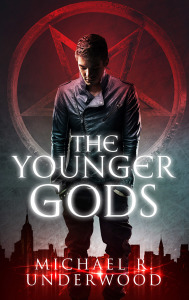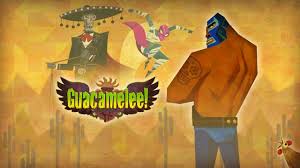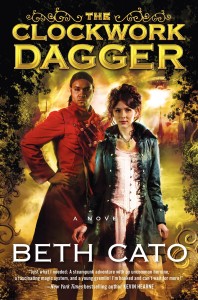or Veteran of a Thousand Content Wars
(with apologies to Hawkwind)
We’re well and properly in the era of The Content Wars in the US entertainment industry – internet music subscription services like Spotify and Pandora, but also into TV/film with start-ups like Netflix, Hulu, and Amazon moving into the content-generation business, all-you-can-watch services that gain market share by having the best selection and supporting both the “I want to watch something” and “I want to watch this specific thing” audiences. Subscription services jockey for exclusive content, either by out-bidding one another for partnerships with distributors or by bringing in people to generate exclusive content.
The result? Unparalleled access for consumers, but for *comprehensive* access, we end up paying out several times. I can watch Community on Hulu, but I need Netflix if I want to watch the new street-level Marvel shows (Daredevil, Jessica Jones, etc.). And I need HBO to watch Game of Thrones, and Amazon Prime to watch more of Chris Carpenter’s. And many of us are still paying for cable access, and then add on these subscription services.
Publishing
The Content Wars have already been waging in publishing – one has to look no further than Amazon and Hachette’s multi-month impasse, resulting in diminished or non-existent access to Hachette content, in-service diminishing of available content, with the service specifically directing attention away from Hachette content to content from providers they were on better terms with. And before that, we had B&N’s impasse with Simon & Schuster, where new S&S books were passed entirely by the chain in many cases, completely tanking the sales of many books that launched during that window.
And now, the subscription model has come to publishing in a bigger way, with Kindle Unlimited making a lot of noise, though it was beat to market by Oyster and Scribd. Libraries have long served as a way for readers to get access to a large amount of content at a single price (usually free-though-you-pay-for-it-with-your-taxes).
But in the last week, there’s been some more chatter about Kindle Unlimited, Amazon’s subscription service. The inciting incident is this article on the New York Times, from David Streitfield. (Looking at Streifield’s previous Amazon articles shows some Anti-Amazon slant, but in this article, I think he’s dead-on).
Former SFWA president and Dude Who Knows A Lot About Publishing John Scalzi talked a bit about KU on his blog, and identified one of my major concerns about Kindle Unlimited: it creates a Zero Sum Game for Authors:
In the Kindle Unlimited scheme, the pool of money available to authors is strictly limited by a corporation whose purposes, short- and long-term, are not necessarily aligned with the authors’, and every time someone with a Kindle Unlimited account reads another author’s work, every other authors’ share of the pot becomes that much smaller. In the traditional publishing model, it’s in my interest to encourage readers to read other authors, because people who read more buy more books — the proverbial tide lifts all boats. In the Kindle Unlimited model, the more authors you and everyone else reads, the less I can potentially earn. And ultimately, there’s a cap on how much I can earn — a cap imposed by Amazon, or whoever else is in charge of the “pot.” As an author, I won’t be able to ever earn more than Amazon wants me to (especially if Amazon requires my title to be exclusive).
Personally, I think Amazon has really flubbed this one. The implementation is wonky (that’s a technical term, folks) – KU borrows seem to count more than ebook sales in the algorithm (anecdotally if not officially confirmed), which skews Amazon’s much-obsessed-over ranking-based discovery engine. I also think they’ve overplayed their hand by limiting KU to KDP Select (and its exclusivity). With the borrow rate notably below the author share for a $2.99 book (where AMZ’s preferred pricing share kicks in, giving authors 70% of retail instead of 35%), all that we’re going to see is more flooding at the $.99 price point as authors try to make back money by gaming the KU system.
And beside all of this, the way KU is working is damaging AMZ’s otherwise-largely massive favor with indie authors, which generate a huge amount of passive income for AMZ retail. Amazon wants indie authors to favor their KDP platform, either as first-among-equals or as an exclusive partner. KU undermines that status for many, though I’m sure there are some authors making a killing in KU – there are always winners with a new system like this, writers whose works are just the right kind of thing for the tastes of the majority of Kindle Unlimited users. By marrying KU access to KDP exclusivity for indies (save for the small minority of indies who are such a large draw that they can command better terms), Amazon is moving the goal posts and forcing authors to chose between anti-competitive exclusivity and access to where Amazon looks to be moving their market.
At the end of the day, so much of this comes down to controlling the territory. The Content Wars, from Hulu/Amazon/Oyster’s perspective, are all about making yourself indispensable, about becoming a Utility – something you pay for every month because you need it to live the way you prefer. Amazon wins when consumers do all or almost all of their reading on Amazon – if your consumer never has a reason to leave your walled garden, they’ll get everything there, and you control what they consume, how they consume it, and what they’re advertised along the way.
Another possible problem with subscription services is that while subscribers might end up reading more books overall, they might pay less for those books – with more of their reading on subscriptions. Oyster/Scribd/KU rely on the gamble that on the whole, enough subscribers will read less than their subscription prices’ $$ worth of books in a month, so that the service can be profitable.
For a $9.99 subscription, that means reading less than $20 worth of books in a month, or 2-3 books a month (presuming that the publisher’s share is modeled on a 50% WHS model). Whether that’s viable remains to be seen. The users who would be most attracted to this model, I’d think, would be super-users, the kind of readers who tear through 10 romance novels a month. But what these subscriptions need to be solvent are casual readers who like the access, the idea of being able to read whatever they want, even if ‘whatever they want’ is actually a tiny percentage of all books currently on the market.
Worst-Case Scenario
Here’s my worst-case scenario, which I don’t think is likely but is very possible:
1) Subscription service(s) become the majority platform for ebook discovery and consumption.
2) Said subscription service (s) pay based on a fixed pool, where retail price or comparative value of books is erased in the process of paying out creators.
#2 is basically the Spotify model for books, which is what Kindle Unlimited is already using. The payout per-borrow is better than Spotify, to be sure, but it’s already trending down from where it started.
The Content Wars are nastiest, from what I can tell, in music, especially for creators. iTunes is the biggest dog in digital music sales, and if you’re not on iTunes, Pandora, or Spotify, your discovery chances are incredibly low (YouTube is your game, in that case).
Spotify and Pandora pay fractions of pennies per play. Imagine your favorite author getting paid $.50 for a read of their brand-new hardcover novel. An industry-dominant subscription model paying on a pool determined by fiat would be disastrous for authors. Consumers might win, and whoever owns and operates that subscription would win, but again, without competition, content providers lose a lot of leverage – they need to be in the only game in town (or one of the only games in town – a small oligopsony is almost as bad as monopsony), unless they’re big enough (like Taylor Swift) to pull their content and use other distribution models.
Kindle Unlimited is not nearly a Spotify, but it’s the closest thing to it. Amazon stands to benefit from making KU more like Spotify, as long as they can keep enough content in the program and deliver a stronger user experience to edge out Oyster and Scribd and therefore control the subscription market the way they control the Ebook market (in the US that is – other territories have a different market share distribution).
Summary
I believe subscription services can be beneficial for publishing, including authors. Oyster’s model is, I think, a good one. They pay full royalties for each time that a user reads beyond the 10% mark in a book, and for now, the publishers that work with them are mostly offering backlist to the service. This means that Oyster can serve as another way to monetize the backlist and get consumers caught up so that they then get excited to pay full price for the newest book.
And really, all of this is still early days for subscriptions, both in publishing and in TV/film and music. I predict that we’ll see metaphorical blood shed in 2015 over these subscription services, but I hope that it’s not the blood of creators.
What do you all think? Do you use Kindle Unlimited, Scribd, or Oyster? And for my fellow creators, what are your thoughts on subscriptions? What would a good subscription service look like to you?






